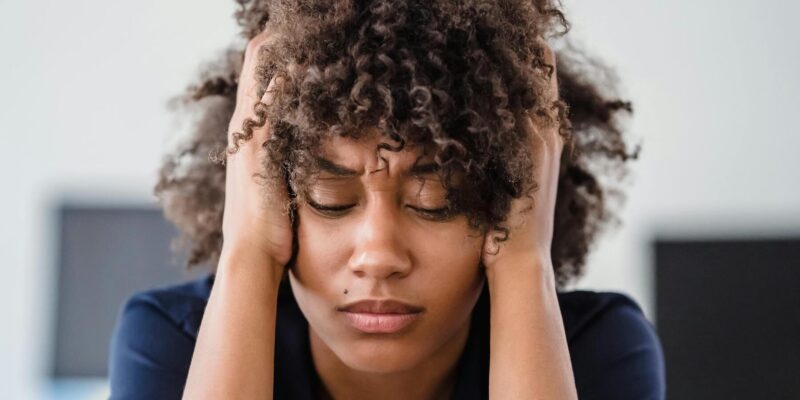It’s useful to distinguish expectation from hope.
Very often we unconsciously use expectations as a defense mechanism to avoid helplessness and lack of control. But like most forms of avoidance, what feels good now, often leads to feeling even worse later.
Here’s an example from a former client of mine (we’ll call her Jane)
How Jane finally faced up to the biggest mistake of her life
In her more honest moments, Jane was terrified that she had married the wrong person. Her husband was not a very sensitive or conscientious person—not in the way she wished he was, anyway.
During one of our sessions, she told me about a recent incident where Jane expected that her husband would start helping clean up after dinner. She had had a big conversation with him the evening before and really laid out why she needed help and asked him to step up.
She explained to me how she told herself that evening that This time will be different and John will finally step up and start helping out and supporting me in the housework. All this is despite the fact that 20 years of experience said that he wouldn’t.
When Jane’s husband again failed to help out, she was disappointed and frustrated with him. And while she never got mad at him overtly, she found herself being even more resentful of him, which often came out in the form of passive-aggressive comments and a lack of intimacy.
What’s more, she found herself disappointed and frustrated—and a little ashamed—with herself for “falling for it” again.
This pattern continued for a long time: Expecting her husband to change, her husband staying the same, and her feeling bad about it—and all the while their relationship continued to deteriorate (needless to say, John not cleaning up after dinner wasn’t their only source of marital strife).
The uncomfortable truth that Jane eventually faced up to was that she had married the wrong person. John’s hyper-confidence and cavalier attitude toward life had been attractive when they first met (and quickly married), but it soon lost its luster. And tragically, Jane had spent 20+ years trying to convince herself that her husband was a different person by expecting that he would finally change.
In reality, those expectations were just her way of avoiding a painful truth: She had married the wrong person. Which meant that she would either have to accept who he was (faults and all) or get out of the relationship, both of which were scary options.
Jane desperately wanted control over something she fundamentally didn’t have control over—her husband’s lack of conscientiousness. And while her expectations gave her some temporary relief and false confidence that things would change, they always led to bigger pain and heartache in the end.
The key psychological lesson here is this:
The mental act of expecting something often gives us the illusion of control.
But all too often, as Jane’s story shows, the illusion of control is a form of self-deception aimed at avoiding hard choices like accepting the pain of a difficult situation or making the tough choice to seriously change our life in a big way.
When you tell yourself a story of how things should be, or how other people should act, it lets you briefly feel like you have more control than you do. And this feeling of control temporarily alleviates the pain of feeling helpless. But this is just avoidance—a way to procrastinate on accepting a painful reality or making a very hard choice.
Remember that Jane maintained unrealistic expectations for her husband because she didn’t want to face up to the reality of her situation that she either had to accept a very flawed husband or end the marriage.
So much suffering comes from unexamined expectations
If you have some kind of recurring emotional or interpersonal struggle, there’s a good chance that unexamined expectations are playing a key role:
- Many cases of depression, for example, are the result of the unrealistic expectation that you shouldn’t feel sad or apathetic. And as a result, you end up feeling angry and ashamed of yourself for feeling sad, which of course only makes you feel worse and strengthens the depression.
- Many types of anxiety are the direct result of unrealistic expectations that you should be just as confident as some other person or some imaginary standard in your head. Or that it’s “silly” to be afraid of X. All of these false expectations are a way to avoid facing up to the reality that you are not as confident as you would like or that you do feel afraid sometimes.
- And of course, as Jane’s story illustrates, so many relationship struggles ultimately come down to unrealistic expectations—to the self-delusion that someone else should be someone other than who they are and our unwillingness to accept our inability to change them.
To be clear, this issue of unrealistic expectations as avoidance mechanisms is often quite complex—certainly not something you address overnight. But one small way to get started is to start distinguishing hopes from expectations.
Hopes vs Expectations
The great thing about the word hope as we typically use it is that it implies a complete lack of control over the outcome:
- I hope the Giants win the series this year!
- I hope I hit the jackpot.
- I really hope I did well enough in the interview to get the job.
Hope implies the absence of control. Expectation assumes its presence.
Try this little experiment: Whenever you find yourself talking to yourself about what you expect to or think should happen in the future, try rephrasing that self-talk to begin with I hope.
For example:
- He’s a grown man… he should know better! → He’s a grown man… I hope he remembers to do better in the future.
- She’s been gone for years now… I shouldn’t still miss her this much. → She’s been gone for years now… I hope the sadness I feel lessens soon.
- I can’t believe I fumbled my answer to that question… I should have said X → I can’t believe I fumbled my answer to that question… I hope I do better next time.
This is just one little experiment you could run to start to become a little more aware of how expectations are operating in your life. Because if you’re unconsciously using them to avoid uncertainty and helplessness, you’re setting yourself up for much more pain and suffering in the long run.
On the other hand, if you can learn to confront and accept your lack of control and certainty—even in very small forms of self-talk—you’ll find a lot of genuine emotional relief and confidence in the long-term.
Hold on to hope, but let go of expectation.





15 Comments
Add YoursThank you. Much needed.
You’re very welcome, Lu!
This thought is freedom in a nutshell. I have a lot of interactions with people and implicit in all of the exchanges is a certain level of expectation. I know now why my energy gets drained. People come in all stripes and colors, and respond differently, sometimes awfully or with deadening silence. Letting go of all this helps. Without being nihilistic, I can become a blank slate for joy and beauty to unfold.
Agreed!
We’ll said Marguerita!
Fantastic, Nick !!!! SUCH good advice !!!!
You bet Tracy!
Good article, as usual! 😉 In my zen meditation we have also played with the word trust instead of hope when it concerns your own efforts – as in, I trust I did well during the job interview – and the rest is out of my control.
Or, I trust I will do better next time.
Or I trust that the sadness lessens soon. Perhaps that goes against the exact point of your article as it gives me a sense of more control but in a positive light and over my own efforts – as in self trust and confidence in that I’ll do better instead of “outsourcing” my own efforts to hope. It has helped me to switch hope from trust in many situations at least 🙂 though trusting I will win the jackpot isn’t a very productive example… but in your example of Jane – I’m thinking that stating “I trust that my husband will change” could work in a constructive way as in being confronted with that the trust for change actually isn’t there… I agree with hoping and also think it can make your life lighter by taking it a step further even and replace hope with trust.
I like subbing in trust! Will have to think on that. Thanks for sharing!
Edit: *to switch from hope to trust
Good morning, Nick, your posts are my go-to more and more and I’m very grateful. This one in particular is so enlightening although painful, and is a path out of the dark woods. I will need a lot of humor to hold onto the knowledge that I married the wrong person and my subsequent years of depression after betrayal and broken family were likely manifested by myself. I hope, not expect, to feel better soon
The insight about a false feeling of control is very useful thank you. It makes sense that expectations are about done sense of control that provides relief from the pain of helplessness. I am struggling though with the idea of hope due to the generally held belief that hope without plan or action is a false comfort.
This is so true. My son said to me that hope was like gambling it was not a plan. I hope he reads your posts this week. Respect and confidence is my view on things. I have trust/ hope/confidence and unconditional positive regard for my fellow man. No one is in control and expectations are often are often not met.
The lady who married the “wrong man; was portraying what she want to see. Her expectations of him were unrealistic. The reality was an unsustainable marriage for them both.
I am now more curious about life and it’s mysteries. I do not know and have no expectations. So often I am rewarded by the unexpected.
I really enjoyed this article and I always look forward to reading any newly published ones. While I understand the theory behind expectations versus hope, I am wondering at what point one has to let go of hope. Perhaps the answer is self-explanatory, but at what point does one, or should one give up hope? Is it as simple as waking up one day and deciding that a situation is no longer tenable? When you do you know you need to give up?
That was really so insightful. Thank you Nick!